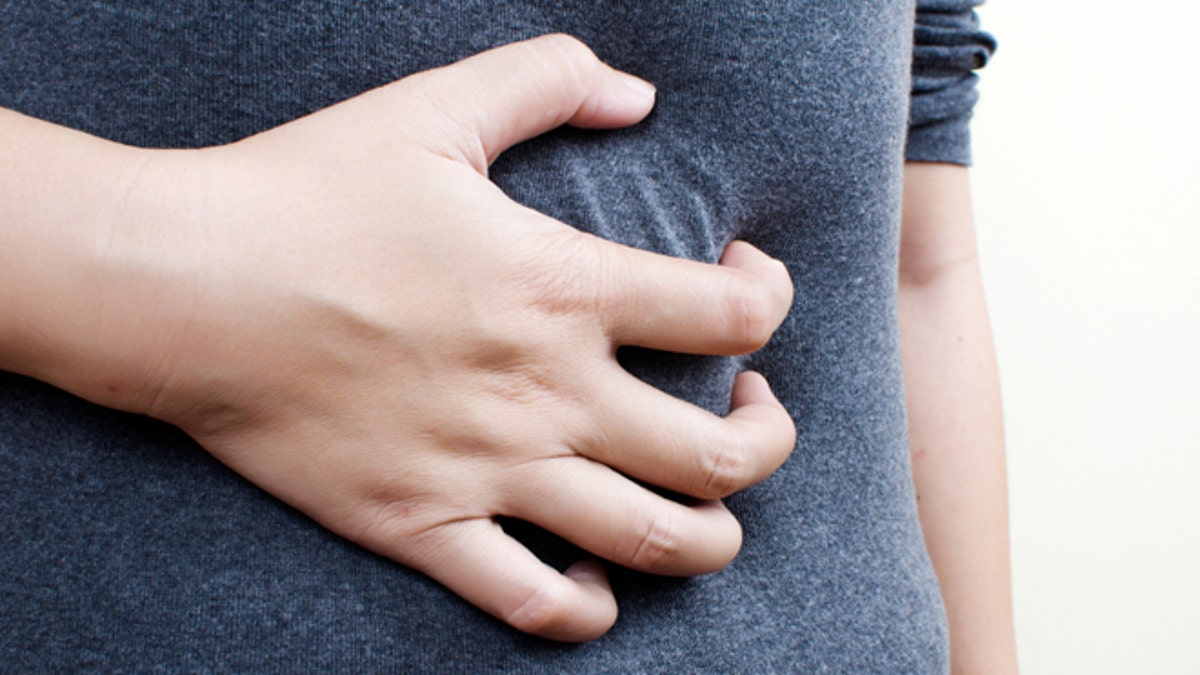
In other words, you have pain in the upper left abdomen which radiates into your back. This pain may get worse when you are eating, especially when eating foods with high amounts of fat. If you experience this type of pain, you most likely have pancreatitis.
Pancreatitis is a disease that causes the pancreas to become inflamed and is most often caused by two things: gallstones or excessive alcohol use.
What is the pancreas? The pancreas is the large gland that sits behind the stomach and next to the small intestine. It has two main functions: It helps us digest food and helps us control how we use food for energy.
In order to help us digest food, the pancreas secretes digestive enzymes into the small intestine. If these digestive enzymes are switched before being released into the small intestine, the pancreas can become damaged.
Pancreatitis can either be acute or chronic. Acute pancreatitis occurs when the pancreas becomes suddenly inflamed, which only lasts for a few days. Symptoms can be mild, severe, and even life-threatening. With proper treatment, acute pancreatitis can be treated. But if acute pancreatitis is left untreated, this can lead to infection, bleeding, cysts, or severe tissue damage, and can also begin to affect the kidneys, heart, or lungs.
Chronic pancreatitis occurs when the pancreas remains inflamed for a long period of time. This type of pancreatitis often occurs as a result of acute pancreatitis, or after long-term excessive alcohol consumption.
Signs of acute pancreatitis include upper left abdominal pain that radiates to the back (usually made worse when eating, especially high-fat foods), fever, nausea and vomiting, increased heart rate and swollen or tender abdomen.
With chronic pancreatitis, you may experience similar symptoms, although the upper abdominal pain is usually more persistent and severe, weight loss may occur, and you may even develop diabetes.
Acute pancreatitis is most often caused by gallstones or excessive alcohol use. Gallstones can trigger an acute attack when they leave the gallbladder and get stuck in the common bile duct. When an attack occurs as a result of excessive drinking, it usually happens within a few hours or up to two days. It may also be caused by high levels of fat or calcium in the blood, abdominal trauma, infection, certain medications such as estrogen or steroids, or metabolic disorders.
Chronic pancreatitis is most often caused by gallstones or long-term, excessive alcohol use. It may also be caused by cystic fibrosis, certain medications, hereditary pancreatic disorders, or if you have high triglyceride levels.
Pancreatitis is diagnosed using blood tests to measure lipase and amylase, which are both digestive enzymes. If the levels of lipase and amylase in your blood are high, this usually indicates acute pancreatitis. Your doctor may also do a pancreatic function test, glucose intolerance test, ultrasound or CT scan, endoscopic retrograde cholangiopancreatography (ERCP), biopsy of the pancreas, or additional blood, urine, and stool tests.
Acute pancreatitis caused by gallstones can be treated by removing the gallbladder, or with surgery of the bile duct. If the acute pancreatitis is caused by something else, it may be treated with various pain medication and intravenous fluids. If the pancreatitis becomes severe, you may have to stay in the intensive care unit to monitor other organs it may affect such as the kidneys, lungs, and heart. If the disease becomes severe enough to damage pancreatic tissue, you may need surgery to remove the damaged tissue.
Chronic pancreatitis is more difficult to treat. Your doctor will usually focus on treating the symptoms with pain medication, insulin, pancreatic enzymes, and a low-fat diet. When chronic pancreatitis becomes severe, surgery can help reduce the frequency of associated abdominal pain, restore drainage of hormones or enzymes, or to open a blockage in the pancreatic duct.
Tips to prevent pancreatitis:
- Avoid smoking.
- Avoid excessive alcohol consumption, or alcohol in general.
- Eat a low-fat diet. Aim for whole grains, fruits and vegetables. Avoid foods high in fat such as fried foods or full-fat dairy products, or high in sugar. These can raise your triglyceride levels and cholesterol which may cause gallstones to form.
- Get regular exercise to maintain a healthy weight, or lose weight if necessary.
